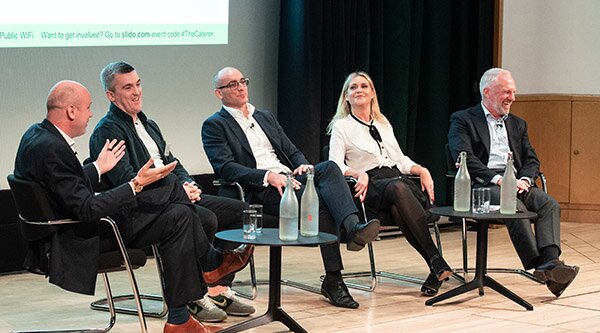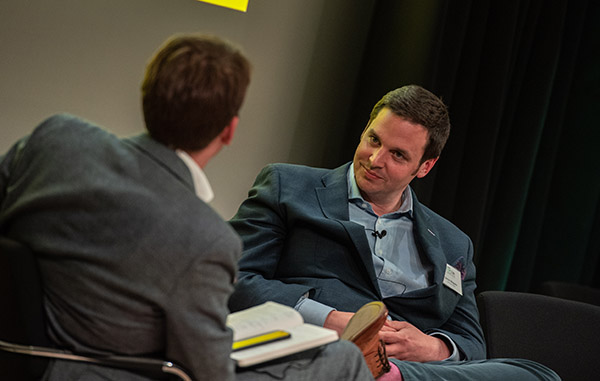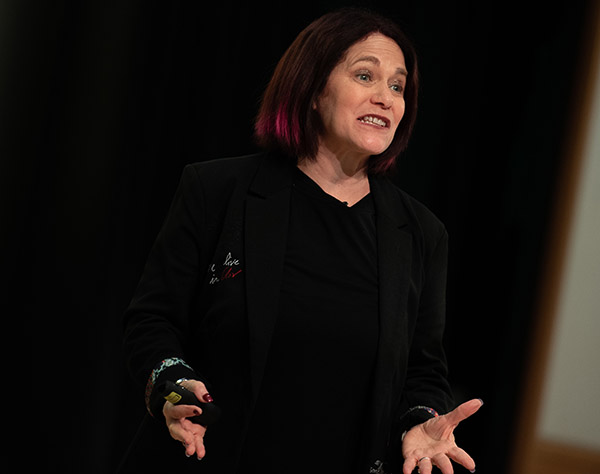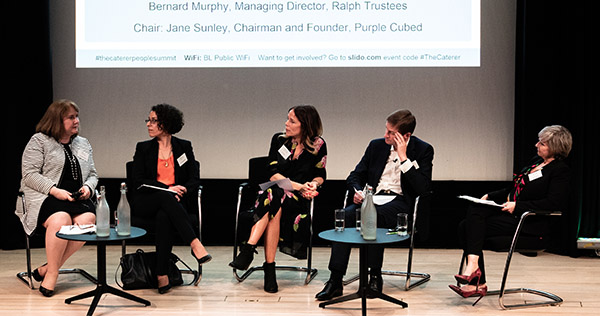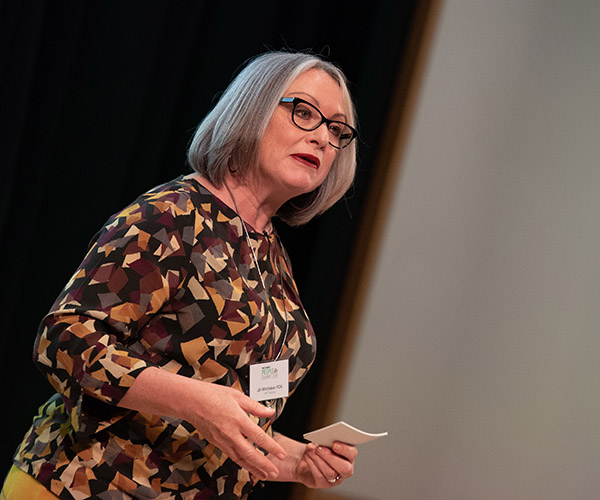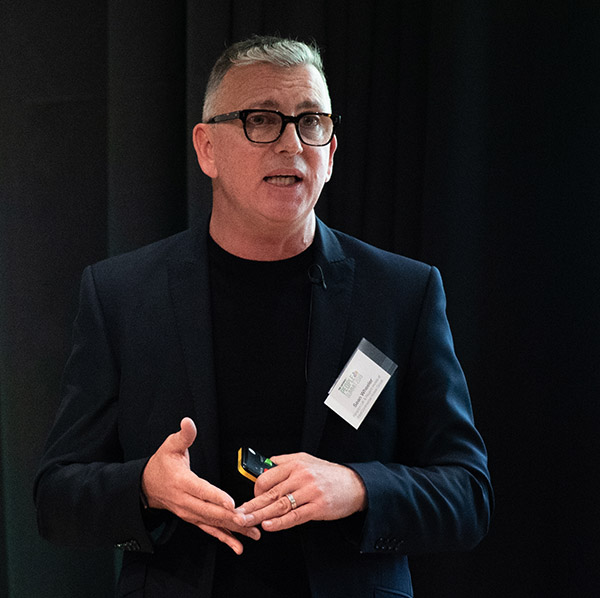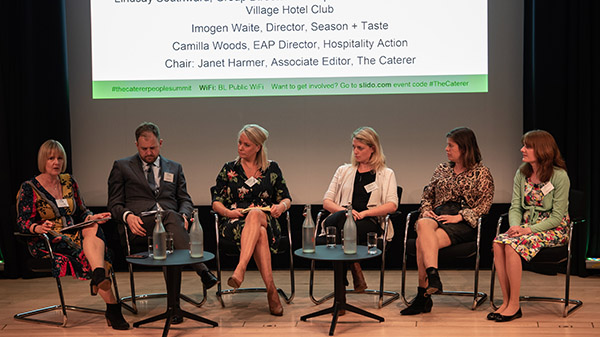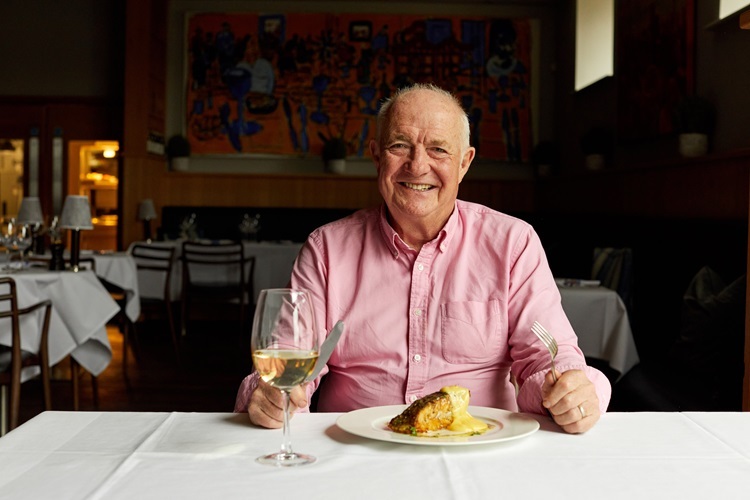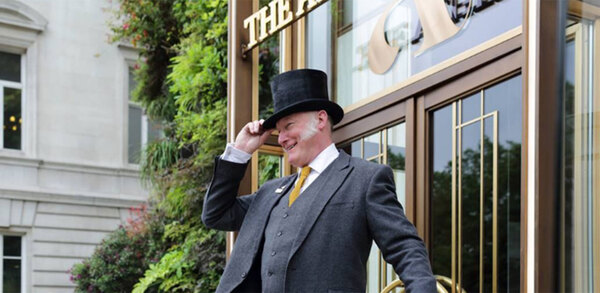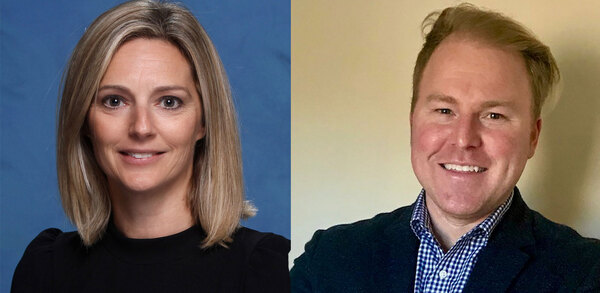People power: highlights from The Caterer's People Summit
Speakers at this year's thought-provoking People Summit reinforced the very real business need for employers to put their workforce first. Rosalind Mullen gives a round-up of some of the highlights
Keynote: Lead at speed
To put this into context, she pointed out that while it has taken Marriott 86 years to hit one million rooms, it has taken Airbnb just seven. And she urged leaders to learn from other peopleâs mistakes, âbecause life is too short to make them ourselvesâ.
To that end, Devonshire researched her book Superfast â" Lead at Speed by interviewing 100 global leaders. And to delegatesâ relief, she shared some their top tips on effective management in this evolving, ever-more connected world:
Pace: Leaders should set the right pace. Your people need to take breaks â" and you need the energy for the job
Pause: Never underestimate the power of the pause because you need time to think
Velocity not speed: Channel your energy in the right direction at the right velocity. It is about how you use peopleâs time
Listen: Empathy is powerful. Get to know your team so that you all work together
Know your customer: Note that in a lot of successful start-ups, the founder was originally a customer of that service
Know thyself
Energy is everything: Sustain it and manage it. For instance, Mondays tend to be bad days for meetings and Fridays are good days for administration
Delegate: Leaders focus on what they know they can do
Edit: Choose what you want to do because it will give you a higher velocity and you will achieve more.
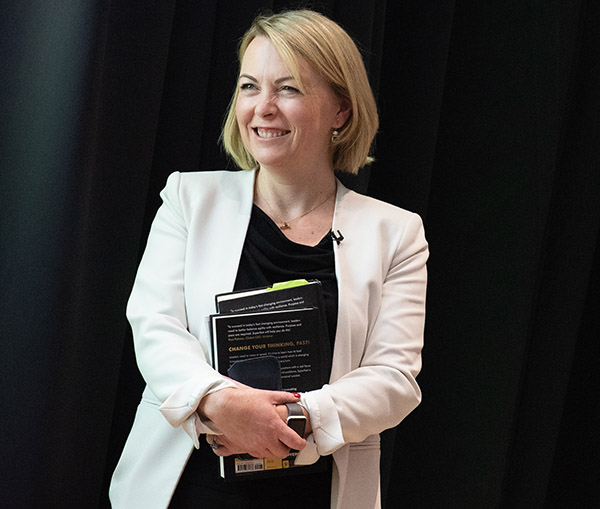
Creating clarity around culture and values
Itâs not just the right thing to do; there is a strong business case for taking care of your employees. The Catererâs deputy editor James Stagg interviewed a panel of movers and shakers with some exciting solutions to your recruitment and retention problems. They were: Adrian Ball, chief executive, Inspiration Trust; Brian McCarthy, managing director, Valor; Andy OâCallaghan, head of people, Dishoom; and Lizzie Kelk, general manager at the Town Hall hotel in London.
Adrian, what can the hospitality industry learn from the education sector? Adrian Ball (AB): The Inspiration Trust is taking 13 schools in East Anglia and creating a group that has shared values. But we donât sell our values; we get teachers to ask themselves if it is good enough for their own child. We create a culture so that every child [in a deprived area] has access to as high a level of education as those in fortunate areas.
Recruitment is a big issue because we need teachers to model the behaviour that will create the next leaders. So, teachers have career pathway development. A survey showed that teachers get no time to continue reading their university subject, so we have invested in this. Now there is a groundswell of people wanting to come back to us.
What is driving the culture of your hospitality businesses?
Andy OâCallaghan (AOC): Dishoomâs heritage is the Bombay cafés of the 1950s. They brought people together from different religions and had shared tables to break down barriers. We wanted to create inclusivity.
We use a Hindi word, âsevaâ, which means being big-hearted, present and mindful about what you do and the team hold each other to account. It helps with recruitment. Our website showcases our values and we discuss them at our open days â" either candidates are into seva, or not.
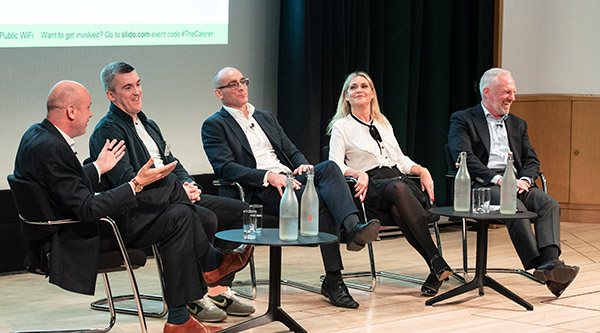
Lizzie Kelk (LK): I joined Town Hall recently, but the hotel opened nine years ago and when I looked at the culture, I saw we needed to re-energise long-term staff. We ask them why they have stayed, what they value about the workplace and we brought people in to tell stories about the buildingâs history to give them a sense of belonging.
Brian McCarthy (BM): We started with a vision, not a mission statement. It needs to be relevant, credible and simple. You need to fulfil peopleâs aspirations because people stay in successful teams. Your leaders need to take responsibility for the culture and live the values. If they donât, let them go. You want people of the right mind-set because then the company grows.
Give some examples of how you engage and retain your staff?
AOC: We break down barriers. Today, for instance, I am fasting [for Ramadan] along with Muslim staff. We are doing it together. We do it for all religious groups.
As for perks, if someone stays with us for five years they go to Bombay, if they stay two years they get a night in a hotel. You can also give benefits that people treasure. Last year we had a cricket day at Lordâs â" it only cost £1,400. It was more about the organisation.
BM: You need to pay what the market demands. It is all about the culture and how you are treated. Being decent is the right thing and it gets better results. It creates an environment where people succeed.
The Caterer Interview: Building an academy
You invested £250,000 to build a training academy in your Christchurch head office.What do you hope to achieve?
SM: Our chairman identified that to move forward as a business, we needed to make step changes. We had experienced rapid expansion, opening eight hotels in just three years, and so the Harbour Academy was driven by the need to build a consistent product, and give our people a reason to stay. We have found the academy does just that.
There are two training purposes for the academy, one for apprentice chefs and the other for front of house. Tell us more
SM: The chef academy was launched in January 2018 and headed by former Michelin-starred chef Sarah King. We worked with HIT Training and used the foundations of a commis apprenticeship, but put a spin on it to make it our own. The 14 apprentices do 32 hours in their own kitchens and eight hours in the academy a week, and sometimes go on field trips â" for instance, getting involved with lambing.
The restaurant academy was started recently [April]. F&B trainer Katrina Stalker is rolling out the Introduction to F&B training course to all staff and by the end of summer we expect 100% of staff will have been through it. Weâve worked with the Institute of Hospitality to offer modules on practical theory and quizzes. There is a cost implication, but we felt everyone should do it.
With hundreds of F&B staff across southern England, how do the practicalities work of delivering the course?
SM: We created the Harbour Masters course, where we took the best F&B staff from across the business and brought them to the academy for a three-day intensive training course, so they can go back and train staff on site.
What are benefits of the academy to the business?
SM**:** Staff turnover has decreased already, although it is too early to say if it is a trend. We can see our head chefs are becoming better teachers and learning to look after young people and keep them engaged.
One benefit we didnât expect was team building. The academy is based at our head office in Chichester, and a good example [of team building] is when the chefs are, say, doing a soup masterclass and the head office team comes down at lunchtime to talk to the apprentices and try the soup â" it creates togetherness.
We also didnât factor in the sense of pride it generates, for instance when we do activities in local schools. It is a good local marketing tool.
You are not from an HR background, so was it a complex operation to set up?
SM: Sarah King had a chef background [Café Gray in New York] and experience of setting up apprenticeships. Katrina Stalker joined from Côte, which does a similar thing to our Harbour Masters to train staff across a large area.
We also took on an e-learning manager, with experience at Caffè Nero, to build a platform called Dock. As well as e-learning, it is a communications tool, flags up staff achievements and helps on the compliance side. The Dock maps out training, coffee chats, potential for a payrise and is a way of measuring ourselves. It works well.
What next?
SM: We had 14 chefs on this intake of chef academy and we want to aim for 32 on the next, because we are growing quickly. On the F&B side, we are building a spa treatment room, reception and bedrooms [at the academy], so it will be like a small hotel with no guests. We are planning to offer an advanced F&B academy, which will be more interactive.
Busting the myths of employee experiences
Myth 1: Engaged employees are those who are happy and satisfied
That is not enough. Employees need to believe in the direction of the company and understand how their role contributes to that.
Myth 2: Only senior leaders need to be in the know
To drive engagement and profit, all employees need to feel they are part of the company. For instance, create an intranet hub to share news.
Myth 3: Long service and annual awards make employees feel recognised
Some 50% of employees surveyed have said they would leave a company if they werenât recognised, but 72% said a simple thank you would help. Recognition should therefore be in the moment, with managers empowered to give out âhero cardsâ or âstar awardsâ to anyone performing well â" not just to 5% of staff at the end of the year.
Myth 4: Recognition should be kept between the giver and receiver
It needs to be public, to highlight the employeeâs achievement and showcase what âgoodâ looks like. Think about an online social recognition wall that allows reactions from peers â" itâs fun and engages younger workers.
Myth 5: Employees are most interested in traditional flexible benefits
Benefits that matter to employees involve time and money. Think about cycle-to-work incentives, a loan programme and a relevant discount card.
Myth 6: Free or discounted gym memberships are enough to support your employeesâ wellbeing
You need to support mental health, too.
Myth 7: Asking employees for feedback every year is fine
You need to do it more often and challenge everyone to be honest about how you are doing.
Building an employee experience that rivals the customer journey
Why do you need a solid people strategy?
Era Gavrielide (EG): In 2012, you might have thought a bit about people, but now your people strategy is integral to your success. You need to measure staff turnover, which is important for stability and service, and collect information on how many people you train and how it has improved the bottom line.
Some companies still send weekly rotas out to staff on the Sunday night. Why is it important to give your staff more control over their lives?
EG: In the US, 48% of people work from home. People want flexible working and that is hard in hospitality, so you need to give people control over their lives.
Bernard Murphy (BM): If you say âintegrity is what we believe inâ and then give your staff a rota five minutes before they are due in, they might not believe in you.
How can you make employees feel part of the business?
BM: Most staff are not interested in your bottom line. Leaders need to find a way to talk to staff. For instance ask: âHow proud are we of this wedding room layout?â Donât say âthis is my idea, sort it outâ.
Jacqueline Moyse (JM): We have learned from the way the marketing team focus on guests. We look at the guest journey and parallel that with that of our employees. It starts before they join, when they look at our website, right through to when they leave when we make sure they feel valued and respected.
What is the best way to convince those at the top that you need to invest in cultural change?
EG: If you can evidence retention, your incentives will have a tangible financial
return. You need to prove it so investors can get behind it.
Jo Harley: You need a digital tool that provides a centralised communications system for all your initiatives to be accessed. YO! Sushi does it well and Firmdale does it well. People need to understand what is in it for them.
Some 51% of employees trust a stranger more than their leader. How can you connect with them?
JM: We have reduced staff turnover by listening to colleagues. In the past 12 months, we have set up a parallel committee to the operations committee with younger representatives. It is a sort of reverse mentorship, whereby they sit in on meetings and give input. It helps for decision-makers to get input from younger colleagues. The younger generation needs time, not money. They need to be stimulated and given stretch assignments.
Jane Sunley (JS): Consider kindness. It costs nothing and makes a difference.
Creating a culture of learning
⢠Tell your employees what training you offer.
â¢Â Get the board to buy in â" one way to do that is to monetise the benefits of reducing staff turnover when presenting your case.
â¢Â Make the training relevant to the business and you will get a committed workforce. One client of HIT saw a 300% increase in the number of people put forward for promotion and a 25% improvement in the number of people retained.
â¢Â Short training sessions donât always work. A development programme that starts on day one and stops when employees retire fosters passion.
New voluntary code of conduct
âHospitality is about delivering great expectations â" but there is a step change, because it is about delivering that for colleagues, too,â said Wheeler. âOther industries are making changes. We need to do something different.â
To get involved go to: www.people1st.co.uk/code-of-conduct
Supporting your workforce to generate positive mental health
How can you support mental health among staff in a small business?
Imogen Waite (IW): It is important to create an openness around mental health because managers need to know what a team memberâs problem is in order to support them. With 85 staff, we can support people on a personal level. Our senior team take time out to chat if they know someone is having a bad time. It is not an easy conversation to have, but it can have a huge impact. It is about caring and about asking âare you OK?â or âcan we do something to help?â.
You need to ensure you have awareness among your managers, because a mental health issue can flag up as a problem behaviour, but in many cases you just need to address the problem.
Nathan Evans (NE): A lot of stresses are job-related and can be sorted out with a chat. For instance, an employee might have an issue with a line manager that has been bottled up, or a piece of equipment might not have been mended.
How do problems manifest themselves?
NE: Early signs are loss of focus on the job. Someone with previously great customer service might start being late, for instance. Take a few minutes and say âis there anything you want to talk about?â If you have created a good culture, people will talk to you.
Village is a much larger business â" is announcing a new policy linked to the fact one-third of your business is leisure?
Lindsay Southward (LS): We have 4,500 staff and are expanding from 30 hotels to 50 by 2026, so itâs rapid and challenging.
We have a huge buy-in from our chairman and so are able to launch Village our Community, embracing what we believe creates a community â" health, wealth and fitness. We work with ambassadors and nominated charities and tap into events, such as Youth Awareness Day, which drive awareness and make people feel recognised, happy, valued and embraced in something.
A third of our business is leisure-based and a huge benefit is staff membership to our leisure club. This is also good for those at senior level, because we forget they work a lot of hours 24/7, too, and it gives them time out.
What work-life balance do staff demand?
NE: We look at it on a case-by-case basis. Our financial controller wanted to leave because his commute was too long and was costing him £7,000 a year. He now works at home two days a week, so he is in a better place and we retained him. It ends up having a positive effect on the bottom line. The cost of recruitment and retraining is massive and the more flexible you can be, the less likely your employees will leave.
IW: We pay hourly, so staff tell us their hours of work, which makes [flexible working] easier for us to manage.
How can communication tools such as Yapster help?
Nicci Setchell (NS): The stress of people not being able to switch off is huge. Apps such as WhatsApp mean staff often receive work messages 24 hours a day. It also requires personal data, which is a data-protection risk to the company.
Yapster has been brought in to fix that. It doesnât use personal numbers or emails. It integrates with company data to allow managers and staff to send messages only during a shift, so it helps with work-life balance. One customer that has had Yapster for eight months has seen employee engagement increase by 30%.
How can Hospitality Actionâs Employee Assistance Programme (EAP) help?
Camilla Woods (CW): EAP was set up to address mental health and addiction problems in the industry. It offers a 24/7 helpline where employees can speak to counsellors about everything from parenting issues to work-life balance.
For more information, go to: www.hospitalityaction.org.uk



